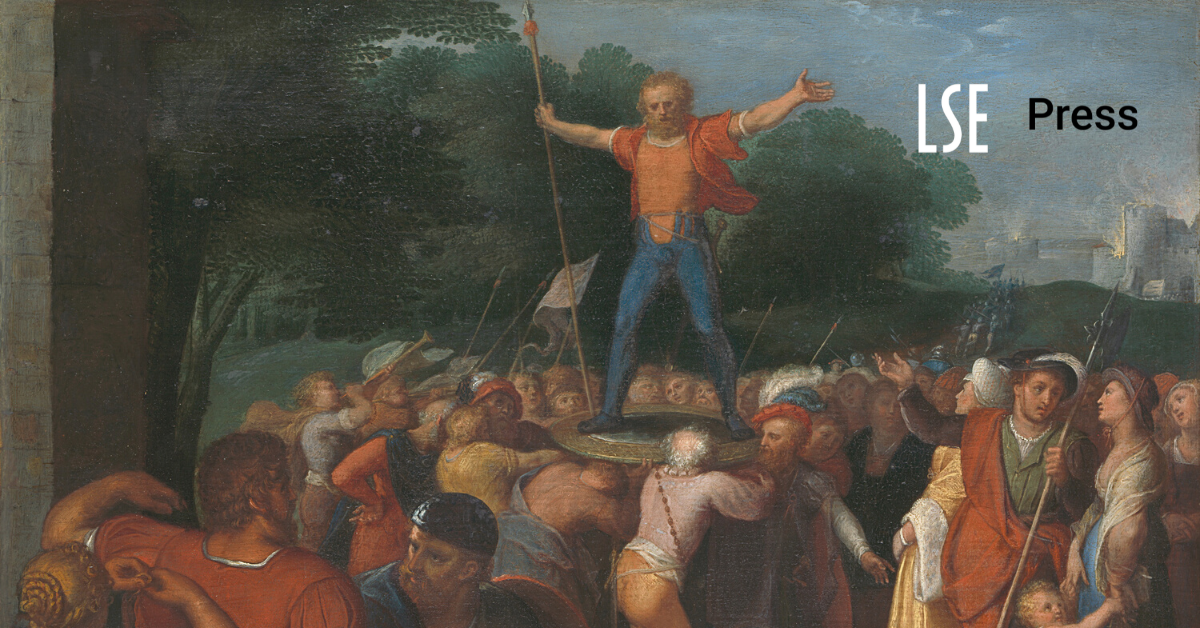Author Gwyn Bevan explores the process of writing his new book, How Did Britain Come To This? A century of systemic failures of governance, and the 8 books which inspired its making. How Did Britain Come To This? publishes on the 24th October via Open Access with LSE Press and will be free to read and download. The book will be launched at the LSE on the 1st November, details here.
In 2019, I was planning a book with Tom Gash with the working title Why is government so sh*t? The demands on Tom’s time from work and his young family meant that I continued to develop the themes of our conversations through writing a book independently. During the thick of the initial UK COVID lockdown, and in the glorious Spring weather of 2020, How Did Britain Come To This? A century of systemic failures of governance began to take shape. It uses concepts and material developed from teaching a graduate course at LSE with Simon Bastow that emphasises the importance of understanding how history shapes political settlements in the choice of institutions. And that institutions set the ‘the rules of the game’ for systems of governance and their incentives.
How Did Britain Come To This? is about the making and breaking of two major political settlements of the 20th Century by the governments of Clement Attlee (1945 to 1951) and Margaret Thatcher (1979 to 1991). This blog explores 8 books that I found invaluable in making sense of the attractions and failures of the two political settlements what could be key elements of a new settlement.

A weakness of the Attlee settlement was its different logic that justified nationalising the ‘commanding heights of the economy’
Daron Acemoglu and James Robinson, in Why Nations Fail, explain how different political settlements have established institutions that have resulted in societies becoming inclusive, or extractive, in which the mass, or a privileged few only, benefit. Acemoglu and Robinson produce compelling evidence from the impacts of changes in the institutions in a society over time; and ‘natural experiments’ of different institutions in different countries at the same time.
Oliver Williamson’s Markets and Hierarchies develops transaction cost economics (TCE) to analyse the ‘make or buy decision’: whether to organise production of a good or service inhouse, or buy it in a market. The logic of TCE is based on identifying high transaction costs from causes of market failure from lack of effective competition and good information, which allow opportunistic behaviour. A weakness of the Attlee settlement was its different logic that justified nationalising the ‘commanding heights of the economy’.
The unbridled enthusiasm of the Thatcher settlement for rolling back the state in favour of markets was based on two mistaken tenets of neoliberalism. The first is that markets for services with obviously high transaction cost could be made to work by government through regulation and contracting. The second tenet is that the overriding objective in governing markets ought to be to maximise share holder value. These tenets explain the hubris of why England has boldly gone where no government has before with the wholesale privatisation of water and sewage and allowing takeovers by private equity. Given the flagrant failures of that experiment it is likely that England will be the first and last to do so. Jesse Norman in Adam Smith: What He Thought, and Why it Matters explains how the economic models that justify those neoliberal tenets are unmoored from Adam Smith’s profound understanding of what makes markets effective. Mariana Mazzucato’s The value of everything explains the rationale for designing executive remuneration based on maximising share holder value and how that has rewarded opportunistic behaviour.

For public services, Julian Le Grand in Motivation, Agency and Public Policy argues that a systemic failing of the institution of the Attlee settlement was its mistaken assumption that all providers of public services were altruistic knights with the consequence that recipients could be treated as pawns. He argues that the quasi markets of the Thatcher settlement, in which money followed choice for schools and hospitals, offered a remedy to that systemic failure. His rationale is that these markets were designed to empower recipients of public services to become queens by sanctioning knavish and rewarding knightly behaviour by providers. Samuel Bowles’s The Moral Economy argues, however, that evidence shows that the impacts of market mechanisms on providers of public services are to undermine their altruism and turn knights into knaves. George Akerlof and Rachel Kranton (2010) offer an alternative to markets to sanction ‘knavish’ and reward ‘knightly’ behaviour using Identity economics, which explains the power of reputation effects. So systems of governance can be designed to generate powerful incentives by ‘naming and shaming’ those who fail to deliver services of acceptable quality, and ‘naming and faming’ those who deliver excellence.
At the core of the Attlee settlement was its economic commitment to full and stable employment. From 1945, there were 30 glorious years of economic growth and reductions in inequalities by income and place. That ended with stagflation. The Thatcher settlement reduced inflation and the powers of the trades unions, and used the revenues from North Sea oil to finance unemployment benefits to the casualties of deindustrialisation. Daniel Markovits in The Meritocracy Trap explains why geographical inequalities have become so entrenched in the neoliberal ‘meritocratic’ societies of the UK and the USA. In these countries an individual’s level of education determines opportunities for employment in ‘glossy’ or ‘gloomy’ jobs. Akerlof and Kranton explain that a reason why children whose parents have low-income jobs choose not to shine in schools is because of a reluctance to cross deeply entrenched class divisions. Britain’s ‘glossy’ jobs are concentrated in the ‘golden triangle’ of Oxford, London, and Cambridge, where housing is comparably affordable for young people with access to the bank of Mum and Dad.
As my book How Did Britain Come to This? shows, the Attlee settlement aimed to tackle the problems of the market failures, which had developed in the 1920s and 1930s, by establishing the institution of central planning. Later, the Thatcher settlement aimed to tackle the failures of the institution of central planning, which developed in the 1970s, by establishing the institution of markets. These markets are failing now. I hope my book helps readers better understand the extent of market failures and the ways in which a holistic understanding of these legacies of failure should shape future policy which better supports individuals from all socioeconomic backgrounds.






